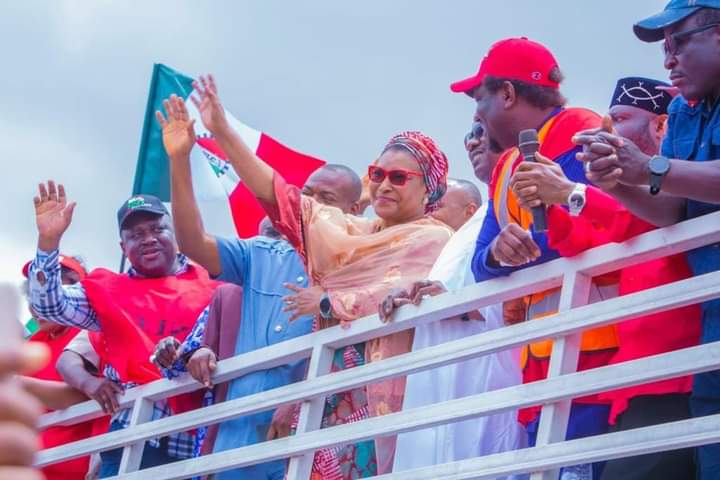The National Labour Congress (NLC) holds a pivotal role in safeguarding the rights and interests of workers across Nigeria, irrespective of their backgrounds or affiliations. However, concerns have persistently arisen among state and local government employees regarding what appears to be a bias in the NLC’s advocacy and support, favoring federal workers. This report delves into the factors contributing to this issue and emphasizes the urgent need for more equitable representation and support within the NLC.
One of the foremost concerns raised by state and local government workers revolves around a perceived imbalance in collective labor bargaining. While both federal and state unions engage in negotiations for national wages, discrepancies emerge when it comes to implementation.
Federal government workers were initially granted ₦18,000 during Goodluck Jonathan’s administration as a response to the fuel price increase from ₦65 to ₦87. Subsequently, ₦30,000 minimum wage was introduced by Muhammadu Buhari to counter the fuel price hike from ₦87 to ₦195. Regrettably, many states failed to fulfill these wage commitments.
The pivotal question is whether the NLC effectively intervened to support state and local government workers in such instances. Unfortunately, the answer appears to be in the negative.
Another contentious issue revolves around the NLC’s approach to strikes. When federal workers initiate strikes, the NLC often rallies its state chapters to participate, demanding compliance. Conversely, state workers are sometimes directed to renegotiate their concerns with their respective governors, leaving them at a disadvantage.
A significant concern is the alarming backlog of salary arrears owed to state and local government workers. In several states, these employees continue to suffer from outdated salary structures that predate even the ₦18,000 minimum wage implementation. Despite these disparities, the NLC has not taken substantial steps to address the plight of these workers.
Take Zamfara, for example. As of the time of writing this article, local government workers and primary teachers are still receiving salaries based on the old scale from Olusegun Obasanjo’s era. These workers didn’t benefit from the ₦18,000 minimum wage, nor did they benefit from the ₦30,000 minimum wage. To date, there hasn’t been any visible effort by the NLC to advocate for their rights.
Regarding other state employees, it is essential to clarify the situation. When their salaries were raised, it was stipulated that anyone whose salary did not reach ₦18,000 would have it increased to ₦18,000. This created disparities, as those with salaries exceeding ₦18,000 did not receive adjustments. In Zamfara, this policy inadvertently created a situation where junior staff earn as much as senior staff, and nothing has been done by the NLC to address this.
The NLC’s commitment to its fundamental objectives—protecting, defending, and promoting the rights of all workers—must extend equitably to federal, state, and local government employees. It is crucial for the NLC to address these concerns comprehensively and to work towards a more balanced representation of workers’ interests.
In light of the disparities and concerns highlighted in this report, there is a pressing need for the NLC to reassess its approach and prioritize the welfare and rights of state and local government workers.
An inclusive and equitable stance by the NLC would not only strengthen the labor movement but also promote fairness and justice for all categories of workers across Nigeria.
It is incumbent upon concerned citizens to amplify these issues through various channels, including social media, to ensure that the NLC’s leadership takes the necessary steps to rectify these disparities and protect the rights of all workers.
